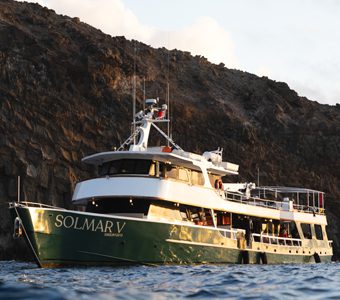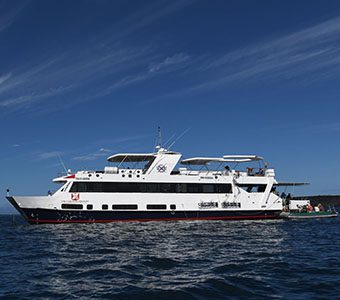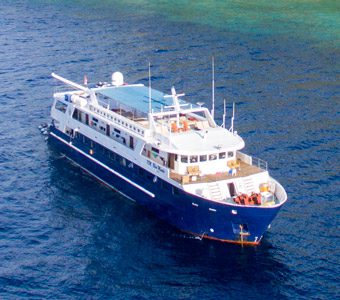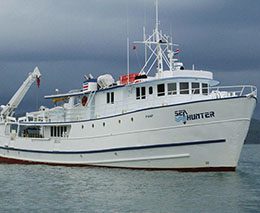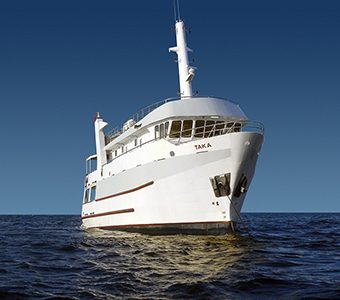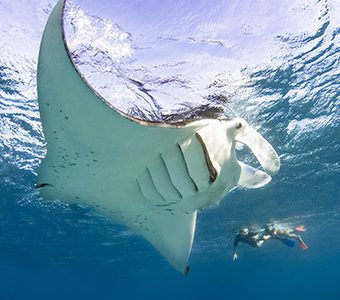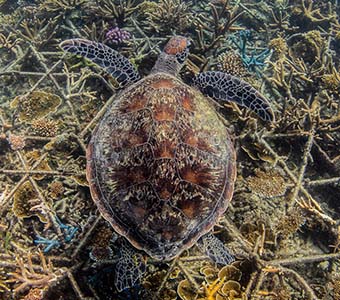After two long years of border closures and lockdowns, many of us are starting to think about enjoying the here and now, while we still can, and booking those big bucket list trips. In fact, many resorts and liveaboards in these bucket list destinations are already heavily booked through to 2024! Here are a few ideas for the here and now…
Cocos Island, Costa Rica
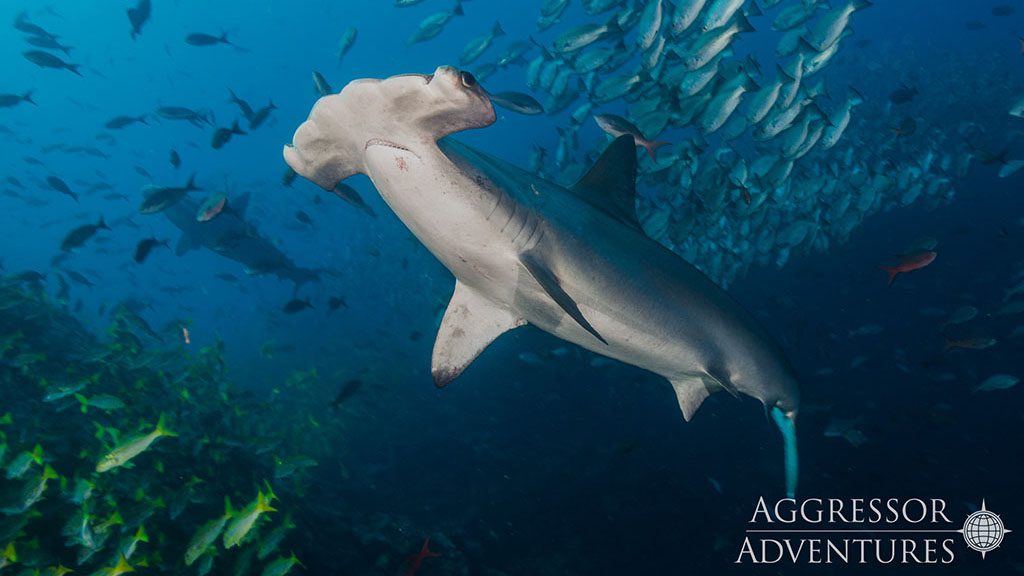
Located 550km off of Costa Rica’s Pacific coast, Cocos Island is one of the most spectacular dive sites in the world. Being so far offshore, similar to the Galapagos Islands 1000km further south, Cocos is an oceanic island offering divers a pelagic experience.
The presence of cleaner fish attracts large schools of hammerhead and other shark species as well as many other pelagics including barracuda, giant trevally and Jacks. Oceanic manta rays and whale sharks are also known to feed in the nutrient-rich waters.
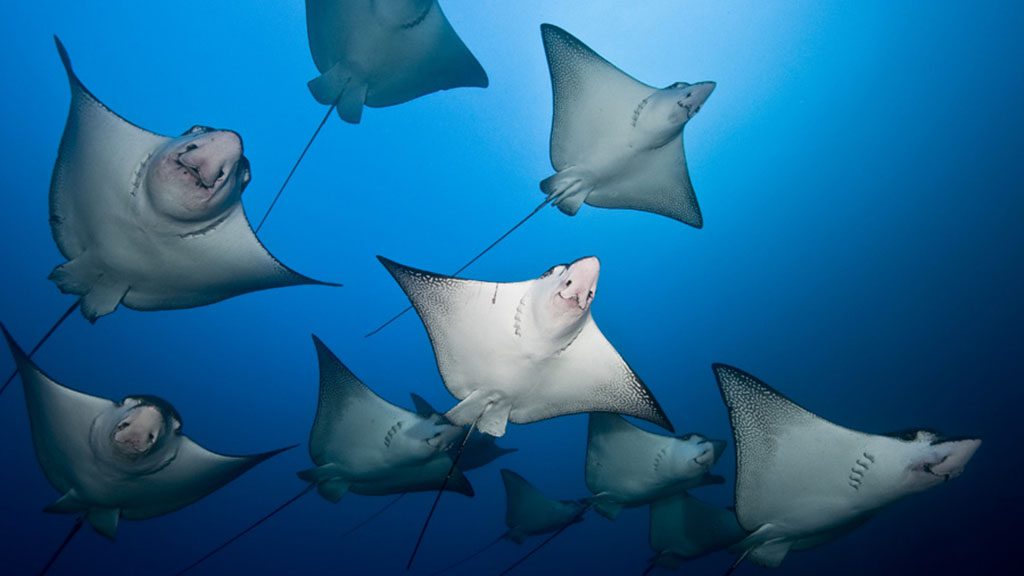
Cocos Island is both tectonic and volcanic in origin and its remote oceanic location means it is only accessible by liveaboard. The island has about 20 dive sites all in compact locations, from shallow to steep vertical walls, to whitetip feeding frenzies and schools of snapper and grunts.
Galapagos, Ecuador
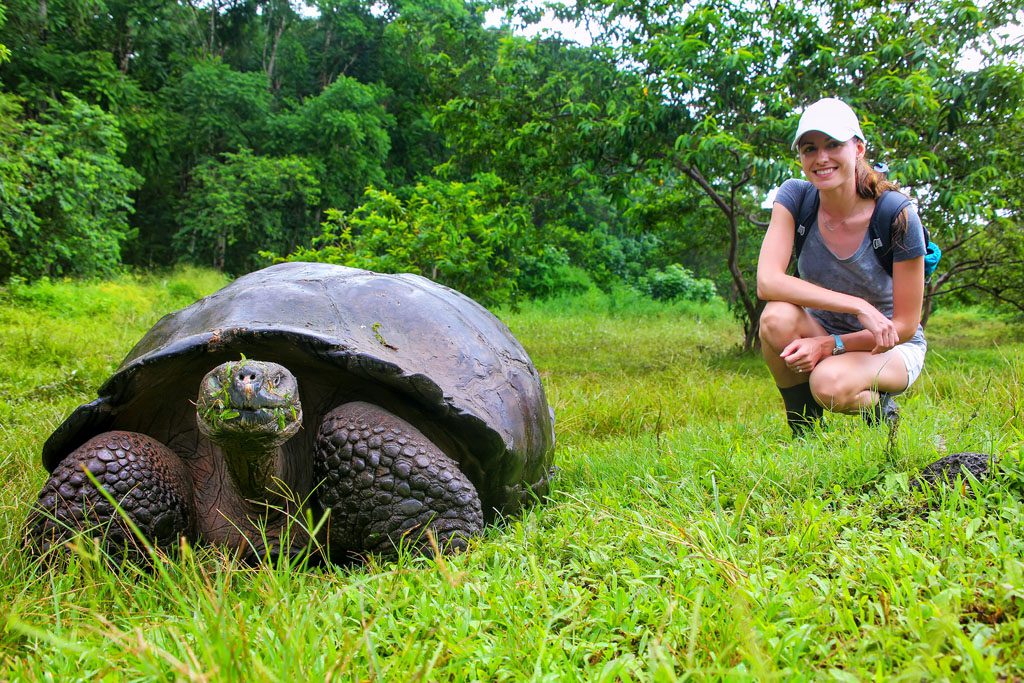
This remote volcanic archipelago is considered one of the world’s foremost destinations for wildlife-viewing, above and below water. Its isolated terrain shelters a wide diversity of plant and animal species, many found nowhere else. Charles Darwin visited in 1835, and his observation of Galápagos’ species later inspired his theory of evolution.
There are fantastic dives on many of the islands, though several islands are stand outs, including Darwin Island where there are often huge schools of pelagic species including hammerhead and Galapagos sharks as well as some whimsical geologic formations. El Arco is renowned as one of the best dives in the world.
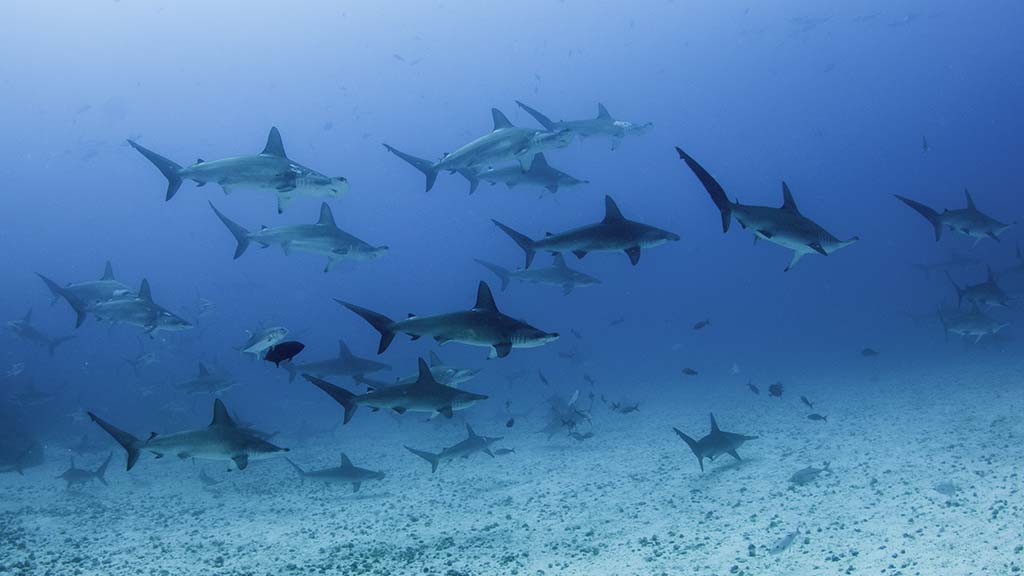
On Isabela Island you can swim with sea lions and penguins and at Roca Redonda, sharks teem around an underwater volcano. The endemic wildlife here is spectacular and are completely contained within this detached location. You can expect to see marine iguanas, fur seals, and penguins during a dive, as well as manta rays and tunas.
Socorro, Mexico
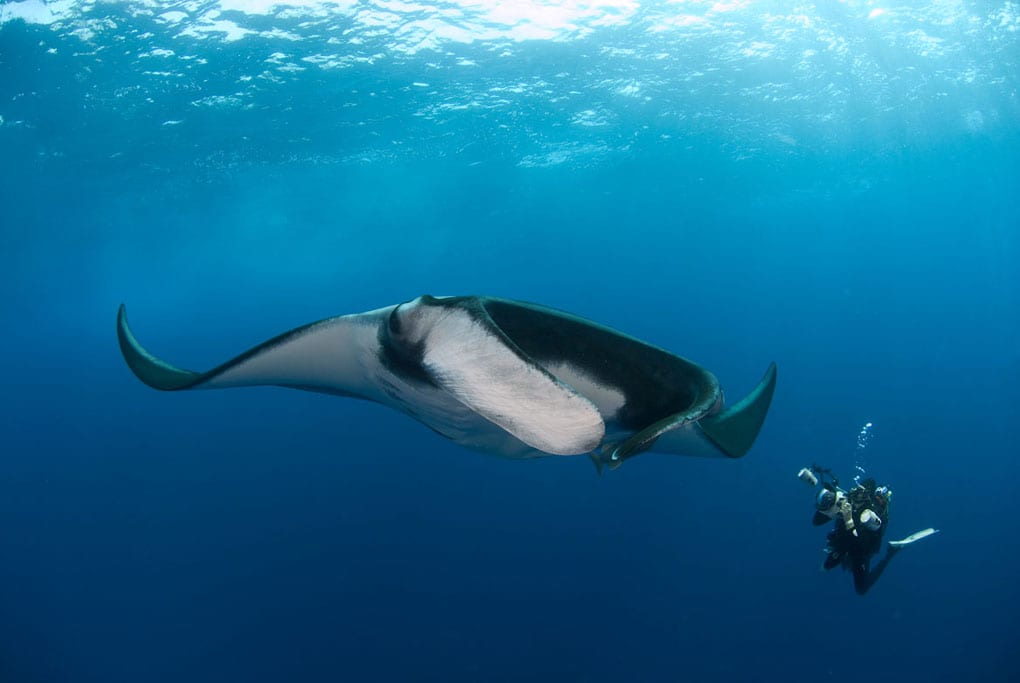
On the east coast of Mexico, sailing to Socorro takes around 20 to 26 hours and the the main attraction here is the population of giant oceanic manta rays that come regularly to the island’s cleaning stations from November through to June.
From February to April, you can also expect to see humpback whales and from April to June – schooling hammerheads, there are also common sightings of silky, Galapagos, hammerhead, white tip and silver tip sharks and whale sharks are usually spotted at the beginning of and the latter part of the season.
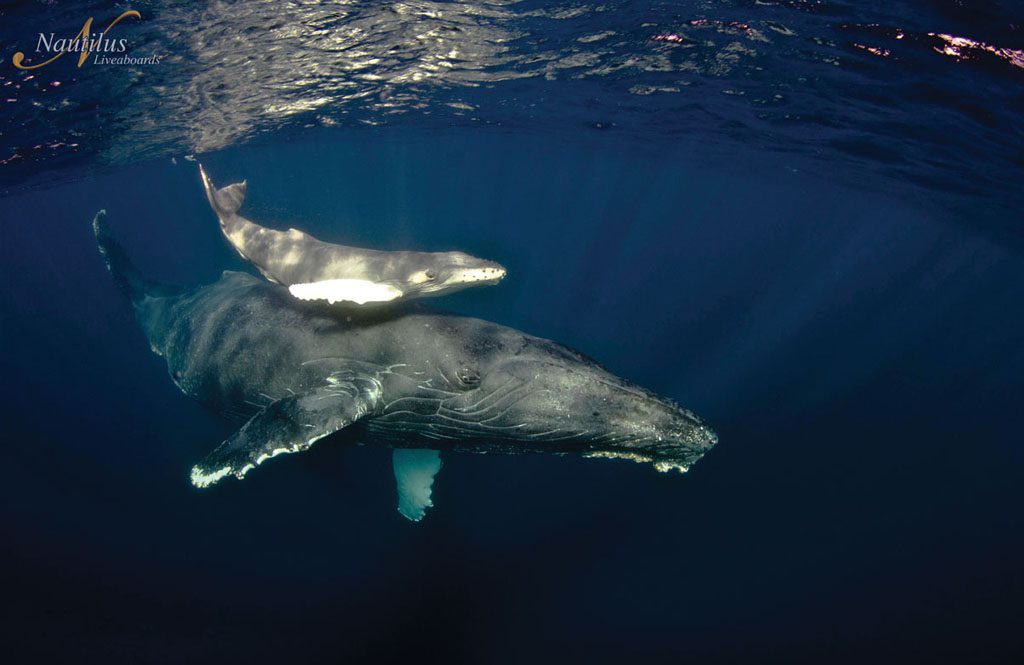
A highlight is the dive site Roca O’Neal, or Hammerhead Central, a pinnacle with a plateau at about 10m, where you can basically sit and watch the many shark species pass by in the current. Photographers may also wish to explore the cavern below.
Raja Ampat, Indonesia
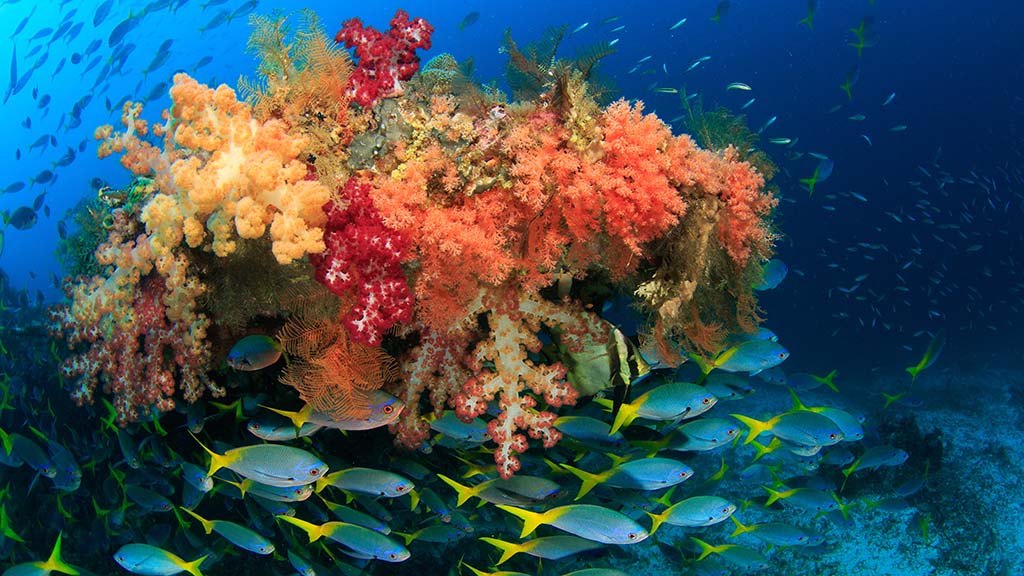
Being both remote and having one of the lowest population densities makes diving Raja Ampat simply stunning in respect of the unspoiled nature of the marine environment. It breaks records for biodiversity of all types of species from coral to fish and several Marine Protected Areas have been established.

Raja Ampat means Four Kings and refers to the four principal islands of: Batanta, Misool, Salawati and Waigeo. There are plenty of resorts and liveaboards offering diving throughout the area. Raja Ampat can be dived any time of year, the water temperature being between 28° and 30°C. It can be a windy between mid-June to September, so the liveaboard season runs from November to April.
Bikini Atoll, Micronesia
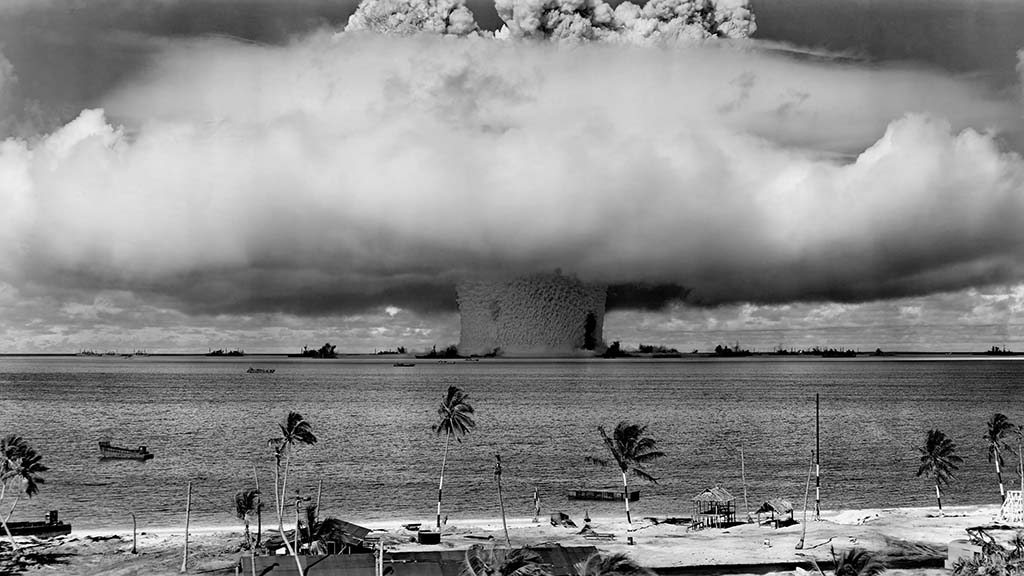
Located in the remote Marshall Islands near Micronesia, Bikini Atoll is one of the world’s most famous wreck diving destinations. Between 1946 and 1958 the US tested 67 nuclear bombs here, most notably during ”Operation Crossroads”. Nowhere else can you dive such a fantastic collection of wrecks, including battleships, submarines, destroyers, and most notably the aircraft carrier USS Saratoga.
Over 60 years later, this nuclear ghost fleet rest in clear blue water and have since become home to an abundance of marine life with thriving reefs and corals. The region has only been open to diving since 1996, making this destination a one-of-a-kind combination of historic wrecks in a remote and otherwise untouched tropical paradise.
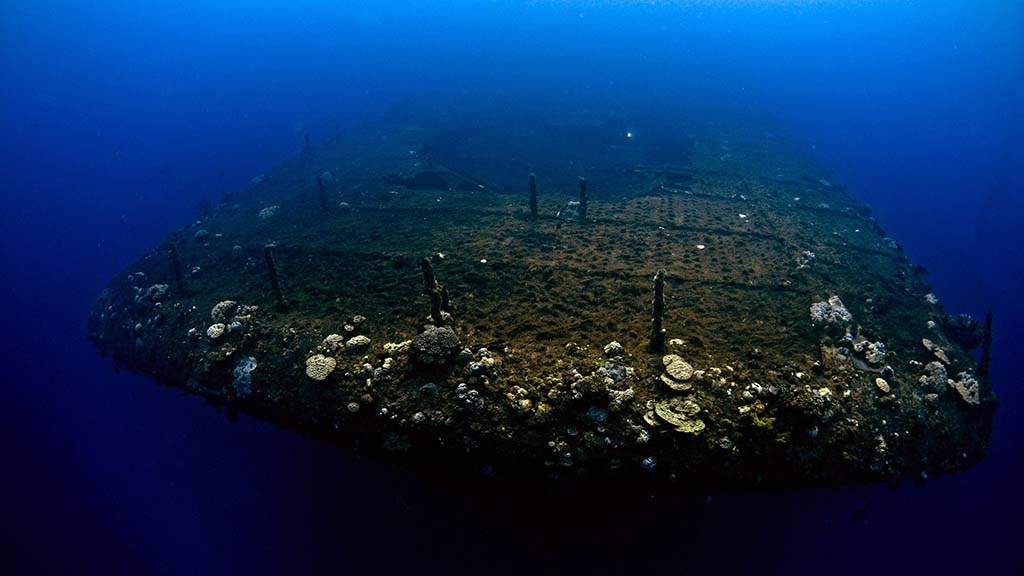
Talk to Diveplanit Travel’s experts to plan your bucket list dive trip – follow the destination links and send us an enquiry – or request a call back!
Dive Clubs: we offer the best group rates for resorts and liveaboards. Contact groups manager deborah@diveplanit.com for more information.
This article first appeared in Scuba Diver Australia New Zealand. Click here for subscription options for either print or digital versions.

